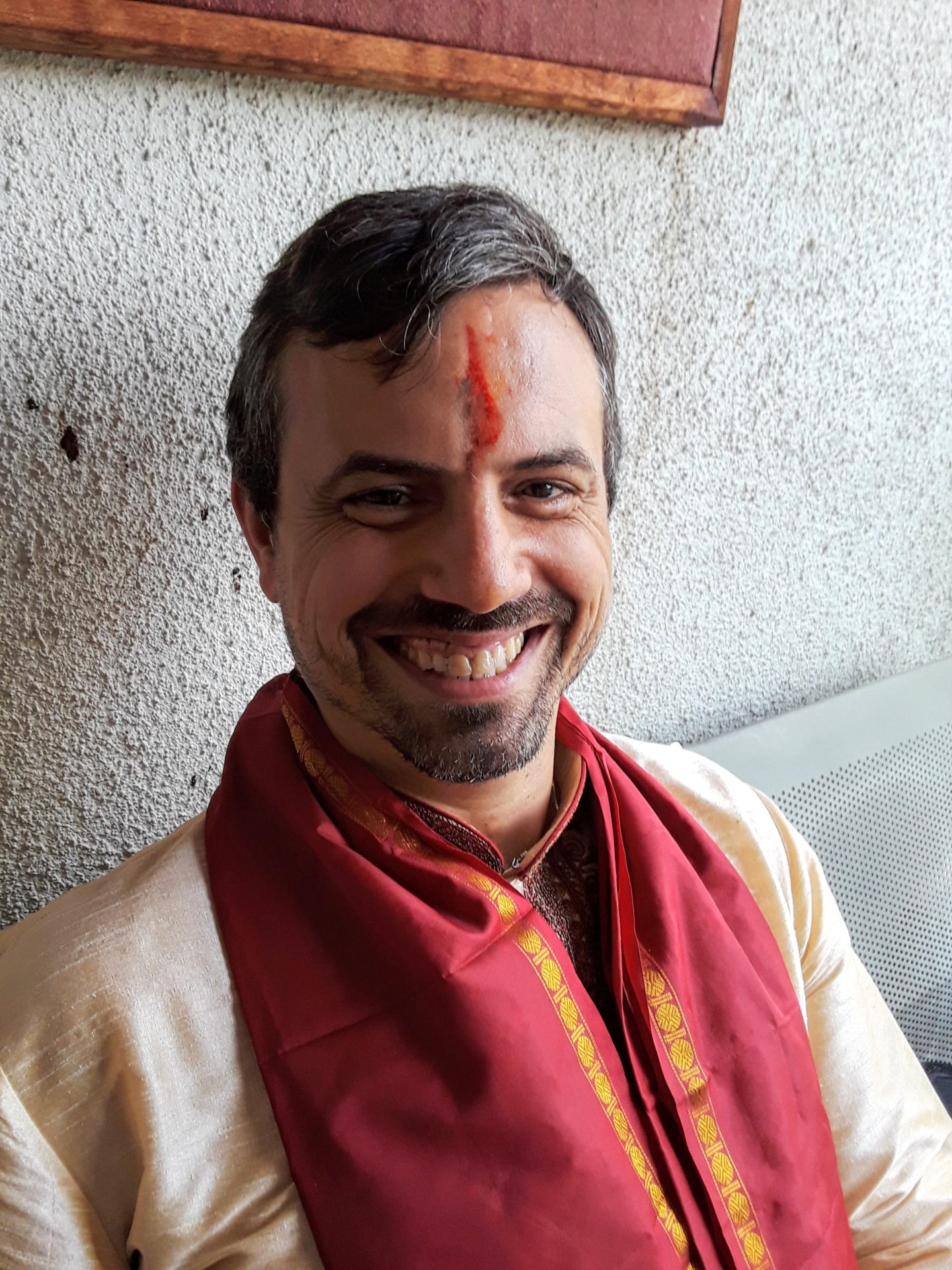Finding, Trusting & Following Your Own Destiny
Every Thursday evening for the past two and a half years, I’ve been doing something wonderful and powerful in my life. I’ve been leading a live online class on the Bhagavad Gītā. Line by line, we’ve discussed how Krishna’s teachings on dharma apply to our lives in the modern world.
I feel so grateful to the students who showed up, week after week, with curious minds and open hearts. They truly brought the teachings to life with their questioning and sharing. When I studied with Mr. Desikachar, I once heard him say that his students had been his teachers, and I most certainly feel that way too. Thank you!
If you’re unfamiliar, the Bhagavad Gītā is a conversation between an uncle, Krishna, and his distressed nephew, Arjuna. It records the advice Krishna gives Arjuna, who is in an impossibly tough situation, and is at a loss for what to do. He’s stuck between a rock and a hard place and Krishna gives him incredible wisdom about how to navigate difficult situations.
For most of us, our rocks and hard places are different from Arjuna’s. But Krishna’s advice is still highly applicable in our lives, even 2,000+ years later, because he gives guidance for how to find meaningful purpose in the mundane details of daily life, even if they’re extremely dreary!
This conversation about purpose in life is a well-developed theme in the Indian Tradition; it is called dharma. Dharma has many, many meanings, but in the context of personal behavior or action, it can be defined as the set of responsibilities, obligations and rights related to a specific position. In other words, it’s what we agree to do and also not to do, and well as the benefits of that, when we take on a specific role.
Every person has multiple positions in their life. For example, a man may commonly be a son, a father, a husband, an employee and more, all at once. Depending on the situation in any given moment, one of those roles will be dominant requiring him to act according to the set of responsibilities and obligations, etc. related to that particular position.
Seems pretty straightforward, but in practice it gets very complicated, especially when we’re in situations where more than one role is in play. And these are extremely common. For example, family businesses are rife with competing multiple roles: Is she my sister or the CFO? The complicated part is that she’s both, and sorting out which one she should be, as well as which one I perceive her to be in this moment, is tricky. The actions that I take have real world consequences, especially on my relationships.
That’s why the Bhagavad Gītā is so amazing. Krishna gives Arjuna very practical guidance for navigating the difficulties of dharma. Practical instructions for choosing the correct action. And it has been wonderful to discuss how these principles work in modern day lives with a group of open and curious people! So wonderful, in fact, that I don’t want to put the topic down yet!

What we’ve covered in the Bhagavad Gītā is the principles of dharma. I thought it would be interesting to take up another text that covers the application of dharma in depth, the Rāmāyaṇa. I chose this to be the next text for our Thursday night study group.
Rāma is considered the very embodiment of dharma, and the story of his life is of a person navigating one tricky and difficult situation after another. By studying his choices, and indeed the choices of all the characters in this great epic, we will be able to study the practical application of dharma in a great variety of interesting situations that are widely applicable to our own lives today. We will revisit the principles of dharma including how to look for it, determine it and have confidence in it.
Reading the Rāmāyaṇa is essentially a course in learning to find, trust and follow our own destiny, even in the very regular and mundane situations of our modern lives!
If this sounds interesting or useful in your life, please join us! If you haven’t read the Bhagavad Gītā or are not familiar with the principles of finding and following dharma as Krishna conveys to his nephew Arjuna, don’t worry! There will be plenty of opportunities to learn these principles in the Rāmāyaṇa and to learn to apply them in our own lives. I think our journey through the Rāmāyaṇa is going to be super interesting and fun. I can barely wait!
Chase Bossart
Director, The Yoga Well Institute





